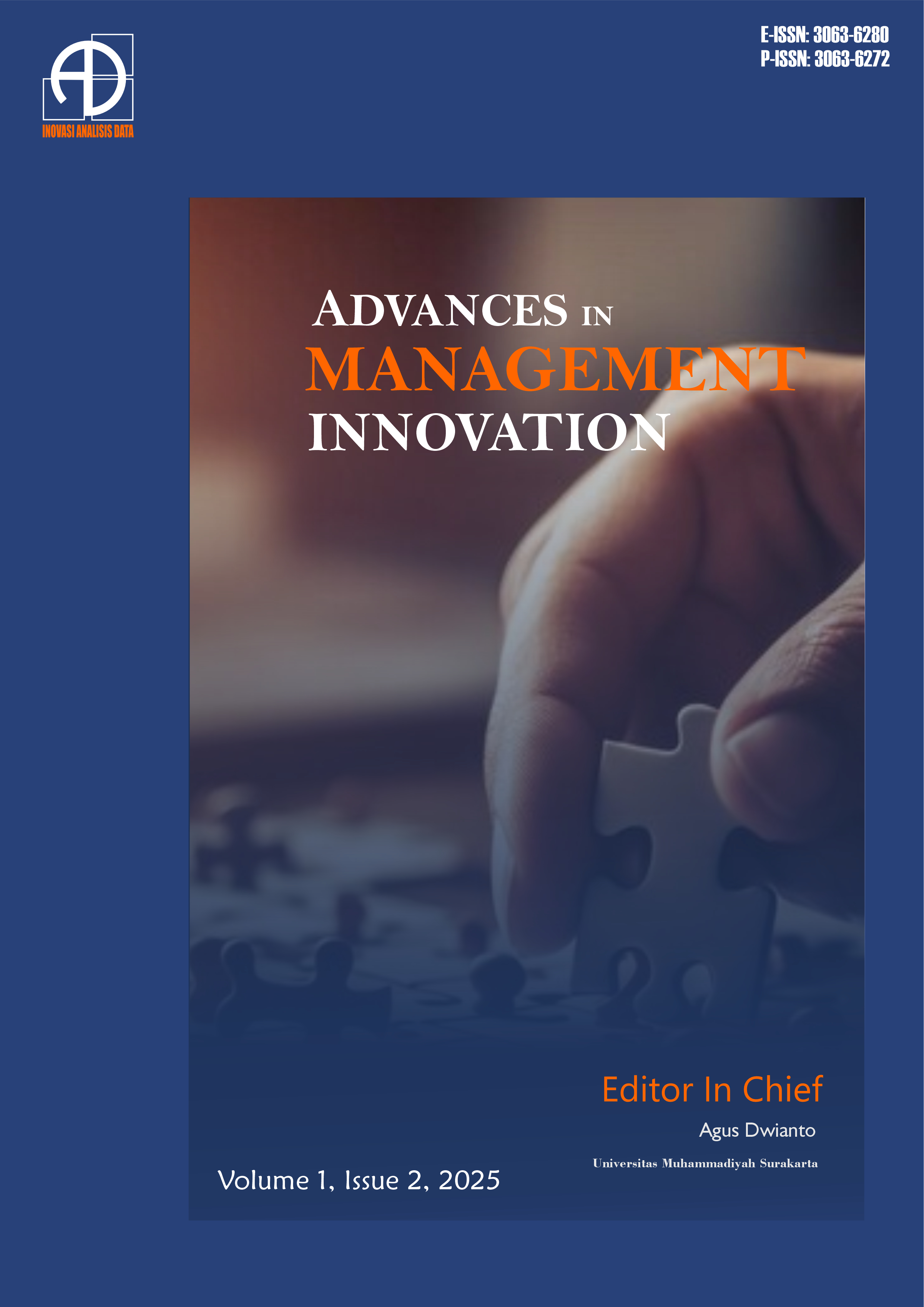Digital Transformation as a Catalyst for MSME Competitiveness and Development
 DOI:
DOI:
https://doi.org/10.69725/ami.v1i2.204
Keywords:
Culinary MSMEs, Business strategy, Digital marketing, Financial management, SustainabilityAbstract
Purpose: The purpose of this study is to determine the strategy for developing a culinary Micro, Small and Medium Enterprises (MSMEs) in market segments, target markets, product characteristics, pricing, location, promotion & economic based level that can improve competitiveness and sustainability.
Method: A qualitative descriptive design was implemented by targeting seven kitchen MSME founders through purpose sampling. The data was collected through in-depth interviews, structured observations and document analysis and it was analyzed via the thematic analysis to ascertain the emerging patterns and strategic practices.
Findings: MSMEs adapt through menu diversification, opening from early hours and using food delivery platforms as suggested by the results. Strategic location based home operations with reduced cost and customer flow. Promotions certain community led campaigns are good for the brand image Lack of digital marketing adoption. The biggest value-added features here are all about the freshness of products, with opportunity for growth in shelf stable innovation. These differences in financial strategies also underline the importance of enhanced financial literacy.
Novelty: This paper is also the first that combines a series of strategic, operational and socio-cultural dimensions of MSME development, integrating a rich body empirical field evidence with some well established theoretical frameworks for addressing market-driven (Porter 1979) and resource-based challenges.
Implications: The results are actionable for MSME owners, policymakers, and development agencies to design focused interventions in digital adoption, innovation, infrastructure upgrade, and financial management to drive sustainable growth and competitive advantage in the culinary industry.
Downloads
Downloads
Published
Issue
Section
License
Copyright (c) 2025 Fauziah Agis Ibrahim, Ahmad Fadli, Haria Saputri (Author)

This work is licensed under a Creative Commons Attribution-ShareAlike 4.0 International License.
Advances in Management Innovation (AMI) © 2024 by Inovasi Analisis Data is licensed under CC BY-SA 4.0
























